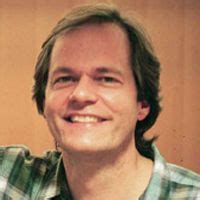A Quote by Alice Roberts
Chance is hugely significant in biology. In fact, the presence of apparent randomness in so many aspects of biology - from mutations in DNA to the chance involved in that one sperm reaching that one egg that became you - suggests that randomness is useful, even necessary, in very many cases.
Related Quotes
The world of science lives fairly comfortably with paradox. We know that light is a wave, and also that light is a particle. The discoveries made in the infinitely small world of particle physics indicate randomness and chance, and I do not find it any more difficult to live with the paradox of a universe of randomness and chance and a universe of pattern and purpose than I do with light as a wave and light as a particle. Living with contradiction is nothing new to the human being.
Like many great ideas in biology, the idea implicating infectious causation in chronic diseases, though simple, has far-reaching implications. It is so simple and so significant, that one would think it would have been recognized by many and would be the starting point for any discussion on the causes of disease. Not yet.
If belief in evolution is a requirement to be a real scientist, it’s interesting to consider a quote from Dr. Marc Kirschner, founding chair of the Department of Systems Biology at Harvard Medical School:
“In fact, over the last 100 years, almost all of biology has proceeded independent of evolution, except evolutionary biology itself. Molecular biology, biochemistry, physiology, have not taken evolution into account at all.



































